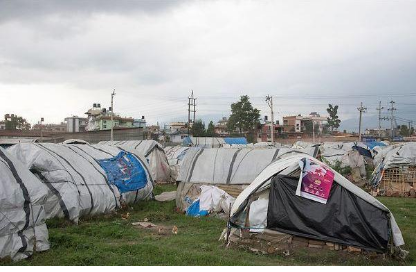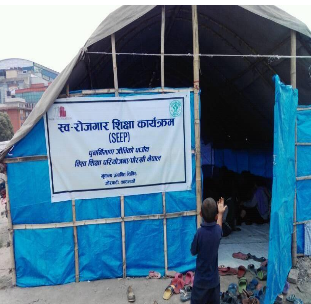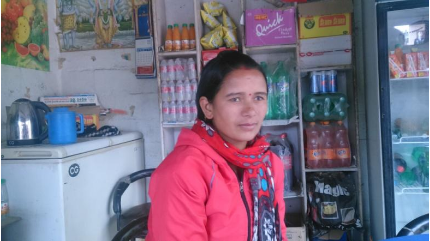Every morning just before the sunrise, Anjula opens her tea shop at Pepsicola to Kathmandu’s early risers. By mid-day, Anjula has already served dozens of customers, made eighty cups of tea, and sold several homemade baked goods. Although her mornings are busy and filled with lively conversations with customers, her life never used to be this way.
Anjula lost her home, relatives and her livelihood during the 2015 earthquakes. Desperate and homeless, she moved into a temporary shelter at Chuchepati with her family and more than 220 families all seeking refuge in Kathmandu. Like many earthquake survivors, Anjula searched for opportunities that would restore her sense of livelihood, help her struggling community, and support her children, who had stopped attending school. She first took a job as household helper, but her 8000 NPR/month income was not sufficient to cover her family’s expenses—even living in a tent.

After months of searching and asking friends about better opportunities, she heard about World Education’s Self Employment Education Program (SEEP) conducted by partner NGO, Pourakhi Nepal, and jumped at the opportunity. In three months, Anjula learned financial literacy skills, honed her hospitality management abilities, and gained access to credit to start the business she runs today.
Two years after the earthquake, the Chuchepati temporary shelter is gone—removed by the government in March 2017—and Anjula now has a roof over her head in Kathmandu, but there are many families who are still struggling to find affordable shelter and stable jobs. The two-year anniversary is a reminder that there is more work to be done, but a time to commemorate how far women like Anjula have come when given the right tools to start over.


